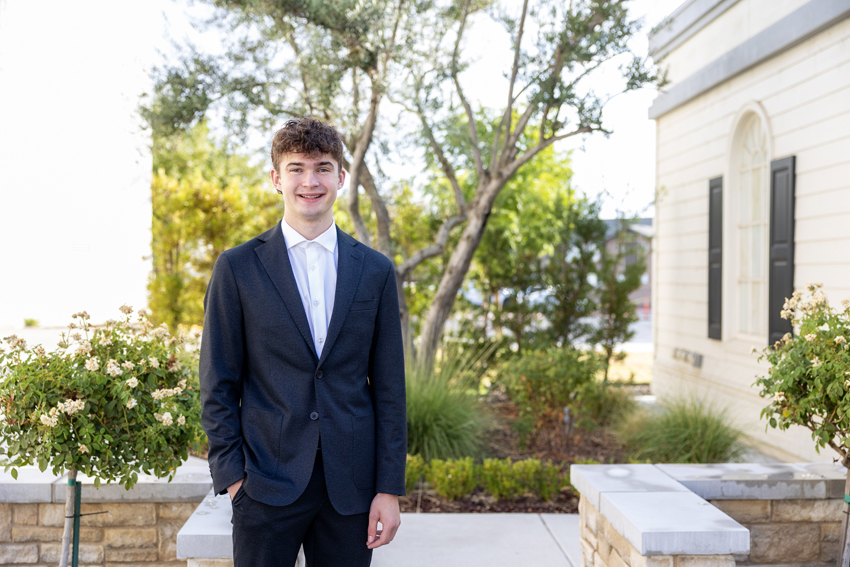Carlos Eire, the author of the National Book Award-winning novel Waiting for Snow in Havana, visited Fresno to speak in front of 3,000 people at the San Joaquin Valley Town Hall Lecture Series, located inside the William Saroyan Theatre, March 21. Eire currently teaches history and religious studies at Yale University.
When I first arrived at the theater, I expected Eire to talk about his personal life and his experiences in America. Instead, his speech was more based on the current events in Cuba and their communist government.
During the Cuban Revolution, Eire was one of the 14,000 children who were rescued by the Pedro Pan airlift. Concerned that their children may be enslaved, numerous parents sent their children away to places such as the U.S. and Europe in this momentous rescue attempt.
His parents, along with many other Cubans, assumed that Eire would return after Fidel Castro was removed from office. However, Eire was never able to come back, since Cuba?s borders were shut down. After the borders were shut, Castro?s brother Raul, continued to rule the country under a dictatorship.
Besides talking about his award-winning novel, Eire also spoke about the events that occurred in totalitarian Cuba — this included crimes of Che Guevara, Castro?s righthand man. Eire mentioned that from day one, Guevara was in charge of the execution of those who disagreed with the government. Additionally, Guevara organized concentration camps in Cuba, which resembled German Nazi camps.
Since communism currently hinders Cuba’s economic growth, no positive changes have been made under Raul Castro?s reign. In fact, there are diplomatic changes that made everything worse. This month alone, there have been over 700 arrests of an organization called Ladies in White, a group comprised of sisters, daughters, cousins and mothers of political prisoners who march along the city of Havana, Cuba in order to liberate their men from prison.
As far as the lives of the citizens living in Cuba, they all receive $18 per month and are not allowed to associate with foreigners. Last year, Cuba had 2.5 million tourists; most of them American. Since everyone is supposed to earn the same income regardless of what they do, it is against the law for those who work at hotels and restaurants to receive tips from outsiders.
Those who visit Cuba are very restricted on where they can travel. Therefore, the struggles of what real people go through on daily basis remain hidden.
Another result of Cuba’s communism would be the current blockade that exists between U.S.-Cuban trade. Since many are not informed about the trading situation with Cuba, some assume that we do not trade with them at all. But, according to Eire, the blockade between U.S. and Cuba does not exist.
As a matter of fact, U.S. is Cuba?s third-largest trading partner. Every telephone pole in Alabama comes from Cuba, while every chicken eaten in Cuba comes from the U.S., Eire said. What the term blockade means is that Cubans pay cash for the products they trade with the U.S., since credit is not allowed.
Once prosperous in sugar and fruits, Cuban citizens do not get a chance to enjoy these goods since they are always being exported. Eire mentioned that his uncle, who still lives in Cuba, has not tasted a pineapple in years.
Towards the end of his speech, Eire stated that he cannot visit Cuba, since he was declared “an enemy of the state” when he dedicated his novel to the political prisoners of Cuba. Erie says that even if he was allowed to visit, he would not go, since visiting would benefit the Cuban economy.
Eire says that the only way the Cuban government could be fixed is through free election, which would let the people decide who their leaders are. Also, the whole world should treat Cuba the way we treated South Africa in the 1980s and restrict travel to the country. Since tourists are its only source of income, their economy would collapse. As a result, the faulty systems that run Cuba would collapse as well.
After his 60-minute lecture, Eire answered questions from the audience. During this time, a skeptical woman spoke against Eire and shared her experience in Cuba, stating that, when she visited, she was able to talk to anyone she wanted, and travel anywhere she desired. She also suggested that Eire should visit Cuba and see how the nation is today. After this, he went over the reasons why he cannot visit his own country.
Her skeptical and disrespectful attitude shocked everyone in the audience. At that point, I realized that this naive lady can represent my generation, who are unaware of what happened just a few decades ago.
After listening to Eire for an hour, I knew that I had to take an action by notifying the people around me. Companies such as Urban Outfitters are producing Che Guevara t-shirts and numerous teens are wearing them, not even knowing who he is or what he has done.
Eire mentioned that those who do not know history are doomed to repeat it. It is crucial to educate and inform the youth through classes and schools that teach more than just the events that happened, but also how they affected people.
Additionally, it is also important to dig into every historical event. Instead of believing everything we are told, we can research on our own and visit speakers that survived through the event and listen to their experiences and stories.
For me, personally, I plan on speaking to more survivors like Eire in order to find out more information. No longer do I plan to take things for face-value; from now on, I want to dig deeper and discover what the truth is. I hope others my age can do the same.
The next Town Hall Lecture will feature Ronan Tynan, a member of musical group The Irish Tenors at the William Saroyan Theatre, April 18. Students can attend a Q&A session with the author starting at 9:30 a.m.
For more information on The San Joaquin Valley Town Hall Lecture Series, read the Jan. 20 article, Tiger Mom discusses ‘hyperpowers’ at lecture series.






